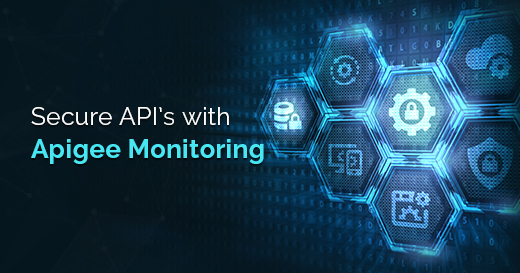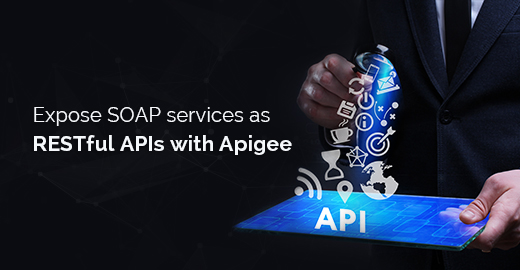Extending the Value of Digital Strategy with Apigee Monetization
Written by Harini Krish
Lead Technical Content Writer
Apigee Monetization
Apigee API Monetization is a comprehensive and versatile solution that helps enterprises leverage digital assets into new business models and revenue streams. Enterprises across several industries leverage Apigee’s API Monetization capabilities to capture added value within the digital value chain.
Benefits of Monetization
As an API provider, you'd like an easy-to-use and versatile because of monetizing your APIs so as that you're going to generate revenue for the use of your APIs. Using monetization in Apigee Edge, you'll create a selection of monetization plans that charge developers for the use of APIs. To access APIs, app developers send requests with an API key, which uniquely identifies the developers and their apps in Edge. As an API provider, this permits you to trace who is looking at your APIs and charge app developers for his or her usage. You'll also measure the usage data through analytics and generate reports.
- With API monetization, the potential to charge for APIS that acquire your business information. With the acceptable API management platform.
- If you are working alongside your partner, otherwise you would like to make your app developer for the usage of your API whether its data or services, this is often your setup track usage and charge people for the usage of API.
Monetize your APIs
When you monetize APIs, you bundle one or more API products into an API product bundle and define the associated rate plan. An API product bundle doesn't appear to developers until you publish a rate plan for the package (with a start date of this date or a future date). Developers can register their apps to use an API product bundle only by purchasing one of the speed plans currently in effect. If an API product bundle doesn't have a printed rate plan that's currently in effect, the package isn't monetized.
How Monetization Works with Apigee

The following are the summary steps required to monetize your APIs.
Manage API Product Bundles
Generate API product bundles to group your API products. Note: within the Classic Edge UI and thus the monetization API, product bundles are mentioned as API packages.
Configure the Transaction Recording Policy
The transaction recording policy defines what you would wish to capture within the transaction records for an API product, including any custom attributes.
Manage and Publish Rate Plans
Generate a rate plan to describe the monetization methodology for your APIs. For instance, whether you charge a flat or variable rate for the use of your API. Purchase a printed rate plan, and expire or cancel a purchased rate plan, if desired, using the API.
Configure Monetization within the Developer Portal
Construct monetization in your developer portal to supply developers’ self-service access to rate plan subscription, automatic payment processing and billing, reports, product catalogs, and other monetization-specific settings.
Key Components of Monetization

API Product
Group of related restful APIs presented to developers as a bundle. Outlines access limits, API key approval method, and other configuration for all API proxies.
API Package
Bundle one or more API products into one monetized container.
Transaction Recording Policy
Rules that are used to control which API calls are determined to be a transaction for monetization.
- Any organization from org to org you would possibly charge for various properties you'll need different criteria Rate plan: Charges incurred for the use of APIs offered during a monetized API product bundle.
Rate Plans
Defines what proportion you'll buy using this API
Two types of Rate Plans:
- Fixed Rate:
With a tough and fast rate plan, customers sign a contract with their suppliers to form sure that their energy price will stay the same for a specific period of some time.
- Variable Rate:
On a variable rate plan, the costs will fluctuate with the market.
Integration of Monetization in Your Developer Portal
Monetization is available through Developer Portal Edge. The developer portal contains monetization-related content that an API provider publishes for portal through Edge. As an API provider, one can take advantage of the features in monetization within the developer portal or integrate monetization features into the developer portal.
Usage of Monetization in Developer Portal
Apigee supports the processing of master card payments using World pay within the developer portal. Monetization features within the developer portal integrate with the World pay payment system employing a Drupal module, which enables your developers to form credit and open-end credit payments, found out prepaid and recurring payment plans, and located out other billing options. To line up master card payment processing using World pay, you would like to possess a World pay account and enable and configure the required Monetization and World pay modules, as described in Enabling and configuring Monetization and World pay modules within the developer portal.

Monetization features within the Developer Portal are controlled by Drupal modules. Once you activate Monetization for your organization, these Monetization-specific Drupal modules are automatically added to your developer portal. You want to configure these modules to enable Monetization features. To fully use Monetization features, developers must complete additional information in the Developer Portal user settings.
How Company and Developer Work with Monetization
With monetization, companies and developers are the objects who pay you, or whom you pay, to use APIs. A developer is a single entity, uniquely identified by the email address. A company may be a collection of developers managed as one entity. Optionally, you'll group multiple developers into companies supported business unit, line, division, or other corporate entity. For example, you'll got to found out different companies for billing purposes. If a developer is a component of a corporation, you will see the corporate name on the Developers page.
Relationships between Companies and Developers
The following image demonstrates the relationship between developers and companies.

Companies are configured with tax and billing data, including the billing type, which specifies whether developers within the company can pay beforehand for his or her API use (prepaid) or be invoiced later (postpaid). Companies contain one or more developers, all of whom share an equivalent company tax and billing information. Developers maintain a group of private profile information, including an inventory of companies they belong to (each of which determines how they're billed or paid). Developers can belong to more than one company. Developers in your organization don't need to be associated with a company.
Conclusion
Using monetization in Apigee Edge, you'll create a spread of monetization plans that charge developers for the utilization of your APIs. To access APIs, app developers send a request with API key, which commonly classifies the developers and their apps in Edge. Royal Cyber team of experts can help you customize this Apigee monetization on your existing platform. For more information on how our team can help you achieve this, you can email us at [email protected] or visit www.royalcyber.com




2 Comments
Looking forward to getting more updates and we play a small role in upskilling people providing the latest tech courses.
Great read! Thank you for such useful insights.